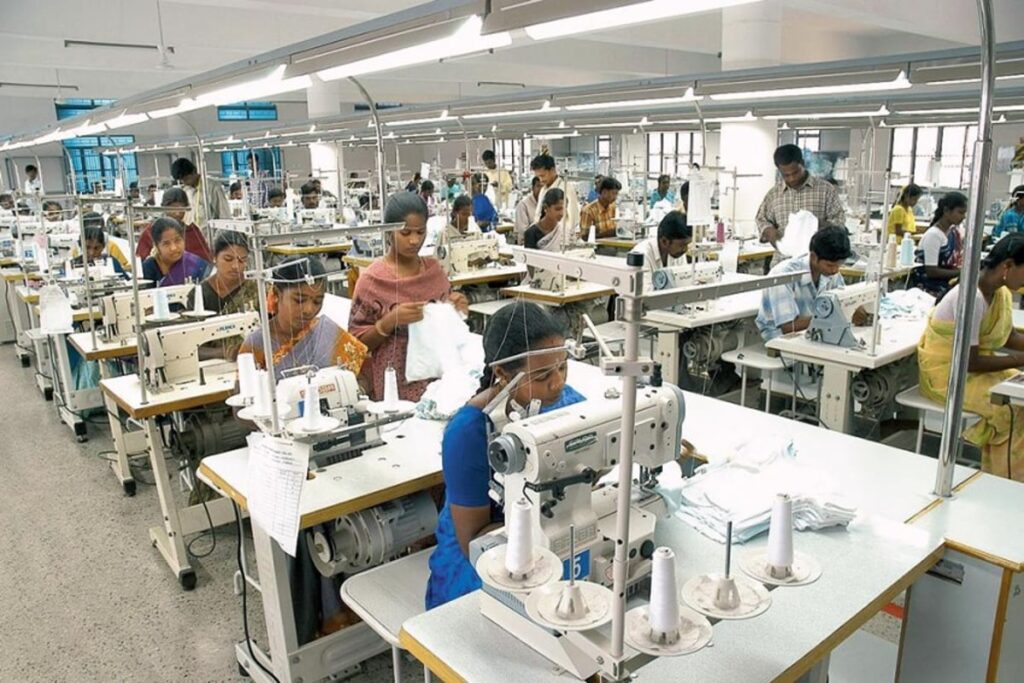
Fueled by the transformative power of technology, India is poised for a socio-economic revolution. The Internet is rapidly changing every aspect of life, from how we connect to how we conduct business. This digital transformation is particularly evident in the e-commerce sector, which is rapidly changing India's economic landscape. MSMEs, the lifeblood of the Indian economy, are being empowered by the democratizing forces of the e-commerce market.
These marketplaces are eliminating traditional barriers to market access, propelling SMEs to unprecedented heights in the global market. This digital revolution is not just reshaping business dynamics; it is driving economic empowerment for SMEs, expanding their reach and enabling them to move forward towards a brighter economic future.
Read: DoT announces initiative to help MSMEs and startups adopt Industry 4.0
A level playing field
Traditionally, establishing a physical presence in a prime location or securing shelf space in a major retail chain has been a major hurdle for small businesses. Imagine a skilled woodworker in a remote village struggling to sell his craft to anyone but local customers, or a bakery in a small town unable to compete with big-city name brands. E-commerce marketplaces like Amazon have emerged as a powerful equalizer, helping many small businesses overcome these barriers. By providing a user-friendly interface and access to a vast supplier network, e-commerce marketplaces simplify buying for customers, reduce operational costs for sellers, and increase efficiency for sellers. This shift has now enabled small businesses to showcase their products to audiences across the country and even the world.
Driving India's e-commerce revolution
E-commerce marketplaces give small businesses access to a set of technology tools that were once out of reach, such as those offered by Amazon. These tools can streamline operations, manage inventory, and facilitate online payments. But the benefits go far beyond mere access. SMEs are not merely passive recipients of these technologies, but are actively contributing to innovation in the e-commerce space. By creatively leveraging these tools and adapting them to their specific needs, SMEs are developing new and efficient ways to sell their products. This fosters a dynamic ecosystem where innovation thrives, leading to job creation and inclusive economic growth.
Read: Interface Ventures and Maharashtra Economic Development Council team up to support MSMEs
Simplified taxation system
Prime Minister Narendra Modi's vision for 'Viksit Bharat' (Advanced India) hinges on empowering Micro, Small and Medium Enterprises (MSMEs). To achieve this goal, the government is leveraging India's expanding digital infrastructure and recognises the transformative power of e-commerce. Digital marketplaces help MSMEs tap into domestic and global markets. Supporting this vision, Finance Minister Nirmala Sitharaman highlighted the importance of strong digital frameworks in her interim Budget 2024. These frameworks go beyond just infrastructure and also include initiatives to enable MSMEs to participate in the e-commerce revolution.
A simplified tax regime is another pillar of this strategy. Streamlined policies will reduce the compliance burden and encourage adoption of technologies such as e-commerce marketplaces and digital marketing tools. This will enable MSMEs to expand their digital footprint, ultimately contributing to economic resilience, job generation and a prosperous 'Vikasit Bharat'.
Looking ahead: Building a robust digital infrastructure
The e-commerce revolution has undoubtedly empowered Indian SMEs, breaking down geographical constraints, streamlining operations and fostering a culture of innovation. But to unleash their full potential and become a dominant force in the global digital economy, a concerted effort is needed.
Building a robust digital infrastructure is essential. This includes ensuring reliable and affordable internet connectivity across the country, especially in remote areas. Bridging the digital divide will enable small businesses across India to participate in the e-commerce boom. Additionally, facilitating affordable and efficient logistics solutions is also important. A streamlined delivery network will not only increase customer satisfaction but also enable small businesses to compete effectively nationally and even globally.
Beyond infrastructure, promoting digital literacy is equally important. Educating entrepreneurs on leveraging e-commerce platforms, managing online stores, and utilizing digital marketing tools will enable them to succeed in the online marketplace. Similarly, fostering digital literacy among consumers will result in a more informed and engaged customer base, ultimately benefiting small businesses and the e-commerce ecosystem at large.
By seizing these opportunities and working together to address the challenges, stakeholders — the government, e-commerce platforms, the SMEs themselves, and consumers — can lead Indian SMEs to a brighter economic future. This collaborative approach will not only empower these businesses but also cement India's position as a major player in the global digital economy. As SMEs thrive online, they will contribute significantly to India's economic growth, job creation, and overall prosperity. The e-commerce revolution is a golden opportunity, and by working together, India can ensure that SMEs not only keep pace with the digital age, but also become its leaders.
(The author is the Sales Head at Amazon India. Opinions expressed belong solely to the author)


